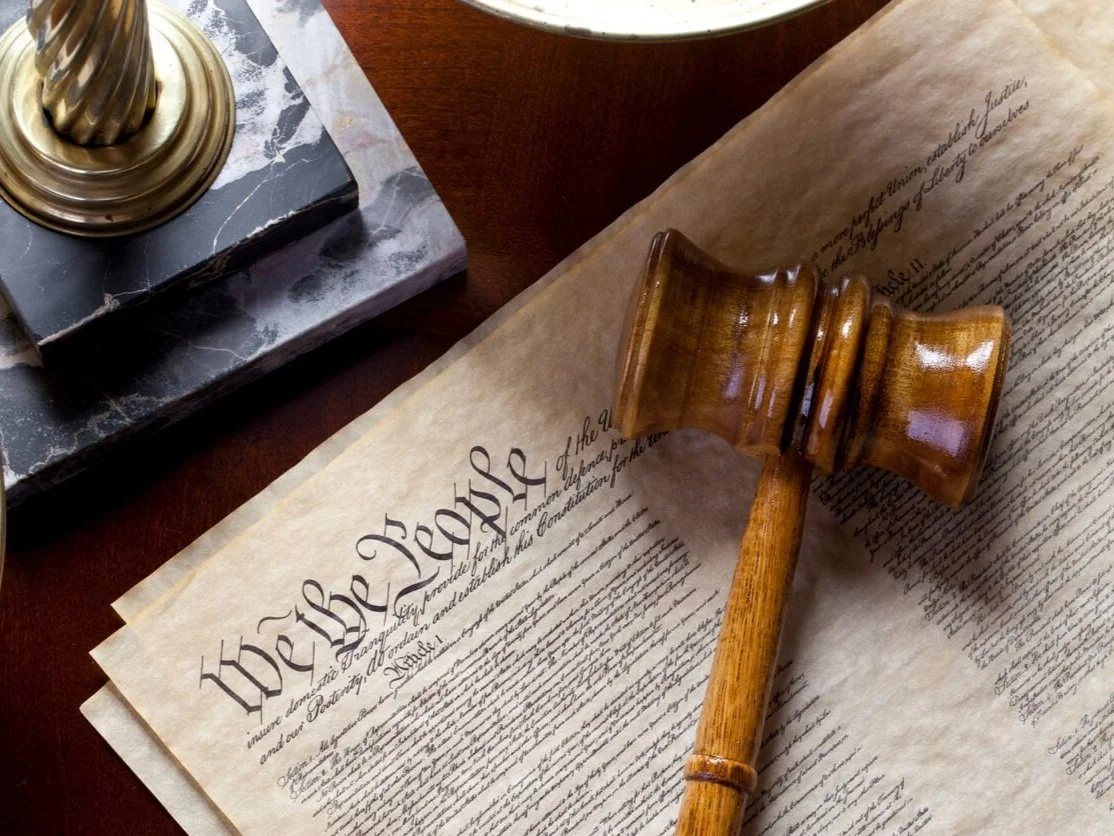If there’s one thing that sensational crime TV has taught us is that we have a right to a lawyer and what you tell your lawyer is privileged, or confidential. It’s true — your lawyer cannot disclose that information and can use it only to defend you.
So, imagine you are accused of a crime and assigned a lawyer. Think about everything you might tell them to help in your defense. Now imagine that everything you said to your lawyer in moments of trust and vulnerability is handed over to the very prosecutor who is building a case against you.
Sound like a nightmare?
This nightmare has been an unfortunate reality for thousands of people around the country who are forced to use Securus, one of the nation’s largest correctional telecom corporations, to communicate with their lawyers while in custody. In recent years, since increasing its suite of surveillance products and services, Securus has consistently been exposed for illegally recording calls between incarcerated people awaiting trial and their lawyers and making those recordings available to prosecutors.
In fact, in 2015, a hack of Securus’ databases resulted in the public release of 70 million recorded prison and jail conversations across at least 37 states, including 57,000 calls to lawyers. Since then, there have been many other cases. Here is just a spattering of incidents from across the country.
In Kansas, Securus, along with private prison operator CoreCivic, were sued for intercepting and recording both in-person and phone communication between lawyers and their clients. In total, 1,300 phone calls were recorded and shared with prosecutors. The corporations were jointly ordered to pay $3.7 million. Following the ruling, over one hundred impacted individuals filed to have their sentences and indictments reviewed.
In Texas, Securus was sued for recording privileged phone calls and making those calls available to prosecutors. Securus was required to pay $20,000 in attorneys fees to each plaintiff though it won a stipulation in the settlement saying that there was “no evidence of intentional misconduct” on the part of the corporation. Securus went on to develop a new do-not-record list to avoid future incidents, but lawyers have complained about the difficulty of being added to the list.
In California, Securus was sued for recording more than 14,000 privileged calls, a violation of the California Invasion of Privacy Act and the California Business and Professions Code. Securus settled the lawsuit by paying $20,000 to each plaintiff and covering attorneys’ fees up to $840,000. Securus denied any wrongdoing but made changes to the way recorded calls are announced and introduced a private call option.
In Maine, Securus was sued for recording hundreds of calls between lawyers and 161 clients. Unfortunately, the judge granted Securus' Motion to Dismiss under the pretense that, despite a clear record of similar actions, the recordings were not intentional.
In New York, just this year, an audit revealed that over 1,500 privileged calls from nearly 400 people awaiting trial were recorded and many illegally turned over to prosecutors.
While Securus is a notable bad actor, they are not alone in this practice. Global Tel Link (GTL), Securus’ primary competitor in the prison telecom industry, came under fire in 2018 for recording privileged phone calls in Orange County, California despite the fact that the attorney’s number was registered on their do-not-call list. As the scandal in Orange County unfolded, it was further revealed that GTL was previously caught recording attorney-client calls in two counties in Florida in 2015.
Phone calls between lawyers and their clients are protected under the Sixth Amendment and the Federal Wiretap Act. Further, the Fifth Amendment guarantees the right against self-incrimination. While systemic violations of basic constitutional rights might typically result in a federal investigation, the localized coverage of these regular violations has allowed Securus to quietly settle individual cases without meaningful accountability. But to be clear, Securus’ repeated violations of these constitutional rights are not isolated or unintentional, they are systemic and the result of financially incentivized corporate decisions.
And the detrimental impact of Securus’ actions is obvious — violations of these constitutional rights can throw a case or compound a sentence, and there is no amount of money that can undo that harm. Anyone stripped of these constitutional protections should have their indictments dismissed or sentences vacated. Indeed, in some states, individuals are seeking such actions.
But federal-level accountability and justice for those impacted should not be the end of the road. It’s time we stop recording calls from prisons and jails altogether.
While it may seem normal today, the broad monitoring and recording of calls is a relatively new machination of a correctional telecom industry that leans heavily on surveillance features to justify high communication costs. In fact, New York City, which managed the nation’s largest jail for decades, did not start monitoring and recording jail calls until 2008. Now, the Federal Communication Commission is actively considering distancing itself from these policy decisions by questioning the legitimacy of including the cost of surveillance technology in calling rates.
Fortunately, legislators in the New York City Council are leading the way and drafting new legislation aimed at curbing this practice. If passed, this groundbreaking legislation would provide incarcerated residents the same right to communication privacy as non-incarcerated residents by requiring a warrant before calls can be recorded and ending the harvesting of voice biometric data. As a city that contracts with Securus, it’s critical that it pass this legislation immediately.
Further, the Department of Justice should also take these violations seriously and open an investigation into these practices that have thus far skirted real accountability. As Securus has proven repeatedly over the years with its blatant disregard for basic constitutional rights, it is only with the rollback and cessation of this surveillance that we can ensure we protect our constitutional rights. If we don’t, perhaps the next violation is on us.

